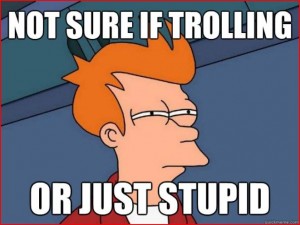- View full syllabus document (PDF) here:
WRTG 3020 New Media & Civic Engagement
Fall 2014
Instructor: Gary Hink, Ph.D
Program for Writing & Rhetoric | University of Colorado
Overview
“Most young Americans possess little of the knowledge that makes for an informed citizen, and too few of them master the skills needed to negotiate an information-heavy, communication-based society and economy. Furthermore, they avoid the resources and media that might enlighten them and boost their talents” (16)—so asserts Mark Bauerlein in The Dumbest Generation: How the Digital Age Stupefies Young Americans and Jeopardizes Our Future (2009). This position presents our point of Contrast: that our lack of “critical thinking” and deliberative reason preclude democratic citizenship; these reactions and conservative technophobia are articulated increasingly, on-going in recent publications and attitudes (for instance, about “millenials”).
In contrast, we will explore the potential of the Network as participatory community, guided by the Theory of Gregory L. Ulmer. Electronic Monuments (2005) provides the method and general project, working in “electracy”—the emergent apparatus beyond literacy—to engage “the Internet as living monument” (xv) and the “group subject” of electronically-mediated networks: “a primary site of self-knowledge both individual and collective, and hence a site supporting a new politics and ethics, as well as a new dimension of education” (xxi). Using the cultural logic of contemporary media forms—particularly digital culture, memes, social platforms—we will develop the potential for new academic work as civic engagement through a series of innovative projects, which cultivate the unique skills and intuition of responsible “network participants.” Combining critical thinking, reflexive insights, and creative expression: the “Target” of our experiment will compose mediated expressions of “collective self-knowledge” (140) and participatory experience.
Course Objectives
This course proceeds from the fundamental understanding that we are in the midst of an apparatus shift beyond literacy toward an emerging paradigm of “electracy.” Ulmer explains that ‘Electracy “is to digital media what literacy is to alphabetic writing: an apparatus, or social machine, partly technological, partly institutional” (Networked 2009). The effects of this shift impact not only communication and identity formation, but cultural forms and social experience as well: one goal of this course is to employ the technological transitions and new logic familiar to us in network society toward productive ends. A second part to this premise is that the prior “television age” involved audiences’ passively receiving the dominant culture as “consumers”; in contrast, the “network age” situates us in a participatory role regarding information, media, and discourse. We will thus both study and exploit the rhetorical implications of this on-going shift for new forms of “civic” discourse. The key understanding of the transition to the new apparatus or technological paradigm will be achieved by employing the modes of the prevalent discourse emerging today—social networks, memes, games, viral circulation—examining these rhetorical phenomena and applying strategies in our innovative compositions, culminating with a “MemeMorial.” While this course requires analytical skills for writing, it also draws upon (and enhances) students’ abilities with narrative, images, and expressive media in the mode of aesthetic authoring, using freely-available software and Web platforms.
There are three levels at which we will examine these issues, perspectives and questions to keep in mind during our study:
- 1. Technology, media, and network developments: impacting possibilities and forms of social rhetoric.
2. Shifts toward new and active roles, specifically in “civic discourse” and participatory culture.
3. Lessons of digital rhetoric to be applied for network communication & circulation about contemporary social issues.
Required Texts:
- Gregory L. Ulmer, Electronic Monuments (Minnesota UP, 2005)
Additional articles hosted online (Web and D2L)—see schedule and posts (front page) for links
Contrast
» Mark Bauerlein (2009): “Most young Americans possess  little of the knowledge that makes for an informed citizen, and too few of them master the skills needed to negotiate an information-heavy, communication-based society and economy. Furthermore, they avoid the resources and media that might enlighten them and boost their talents. An anti-intellectual outlook prevails in their leisure lives, squashing the lessons of school, and instead of producing a knowledgeable and querulous young mind, the youth culture of American society yields an adolescent consumer enmeshed in juvenile matters and secluded from adult realities.” “The insulated mindset of individuals who know precious little history and civics and never read a book or visit a museum is fast becoming a common, shame-free condition.” (p. 16)
little of the knowledge that makes for an informed citizen, and too few of them master the skills needed to negotiate an information-heavy, communication-based society and economy. Furthermore, they avoid the resources and media that might enlighten them and boost their talents. An anti-intellectual outlook prevails in their leisure lives, squashing the lessons of school, and instead of producing a knowledgeable and querulous young mind, the youth culture of American society yields an adolescent consumer enmeshed in juvenile matters and secluded from adult realities.” “The insulated mindset of individuals who know precious little history and civics and never read a book or visit a museum is fast becoming a common, shame-free condition.” (p. 16)
—The Dumbest Generation: How the Digital Age Stupefies Young Americans and Jeopardizes Our Future

https://sxbrx.wordpress.com/